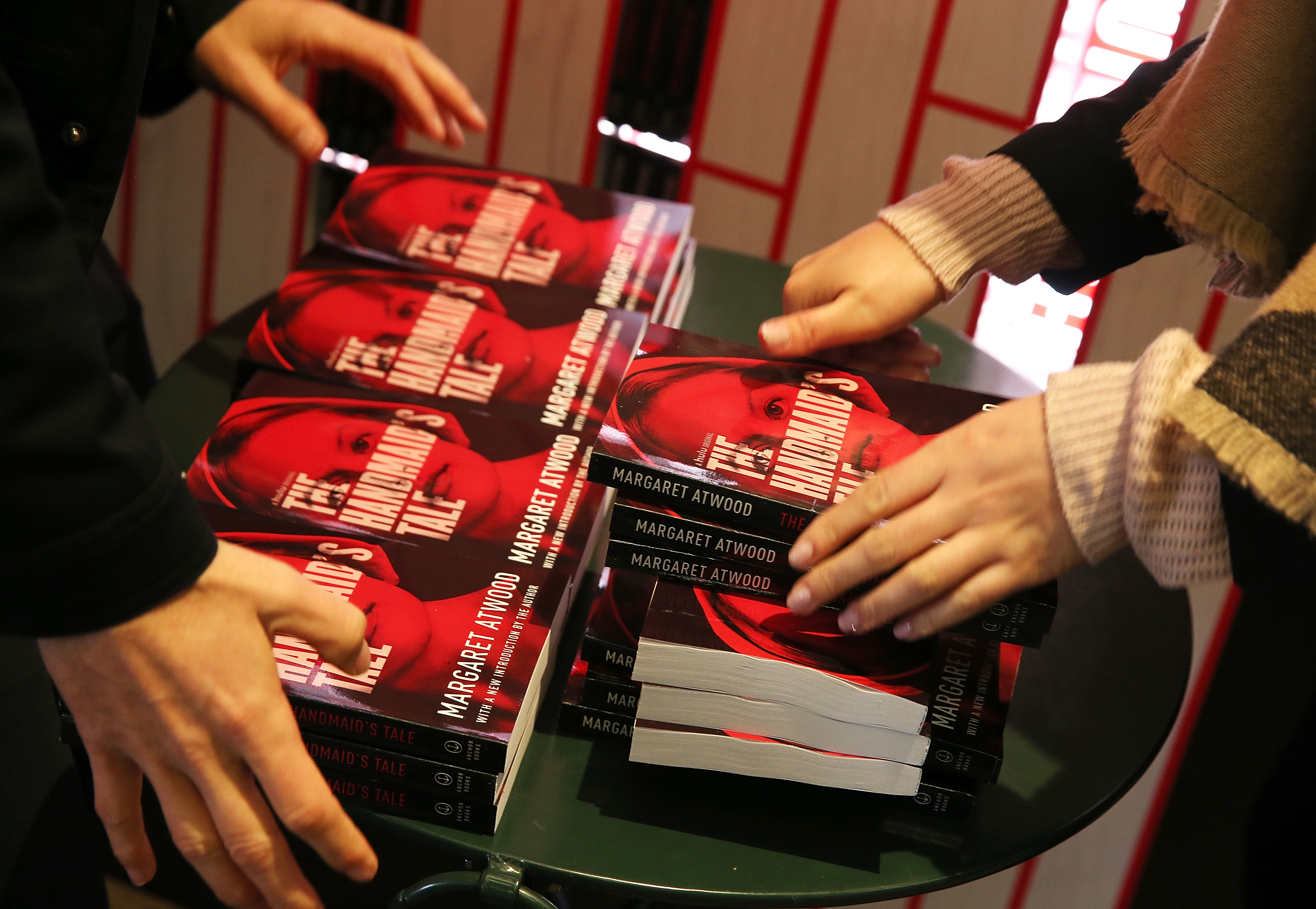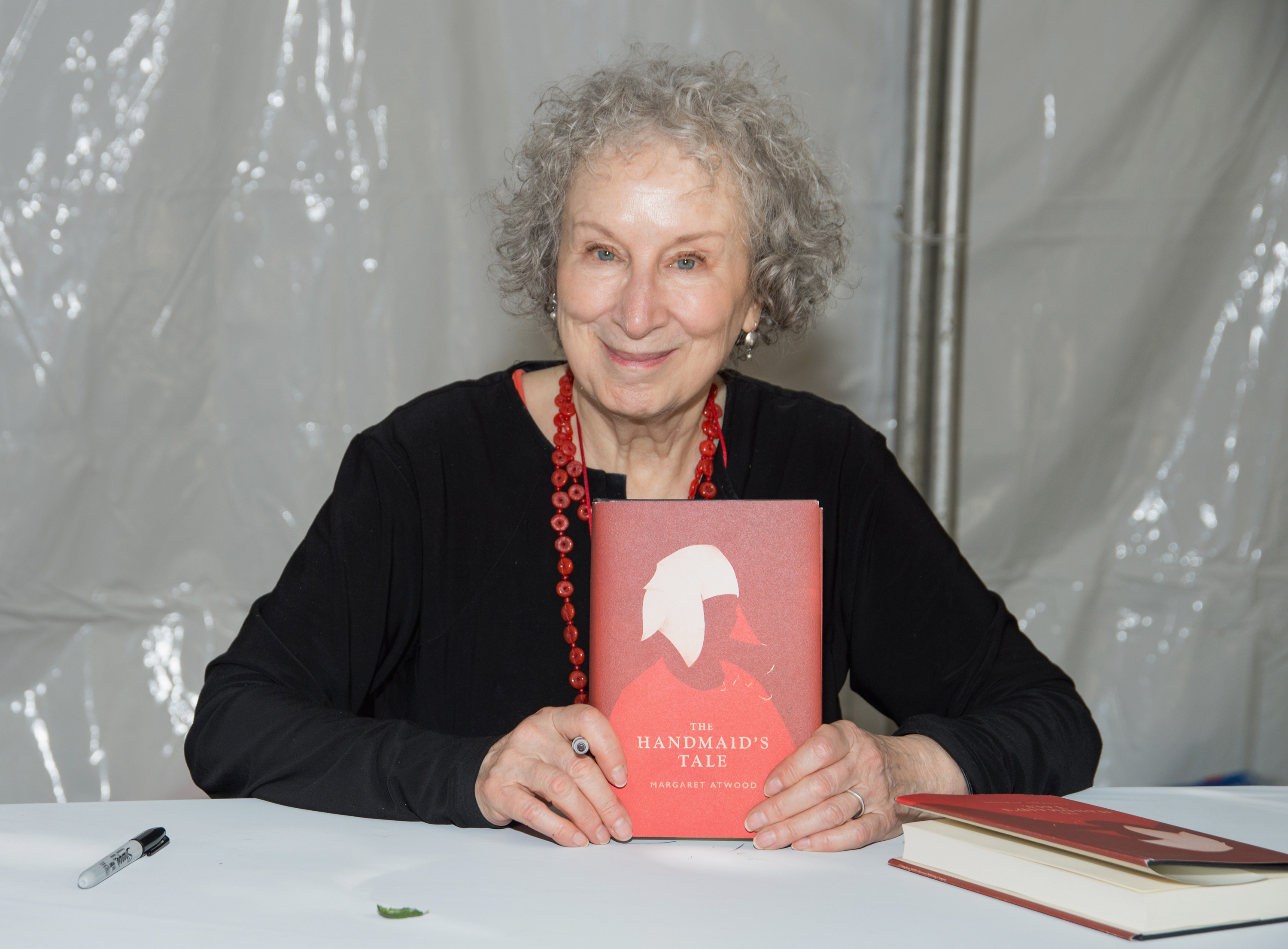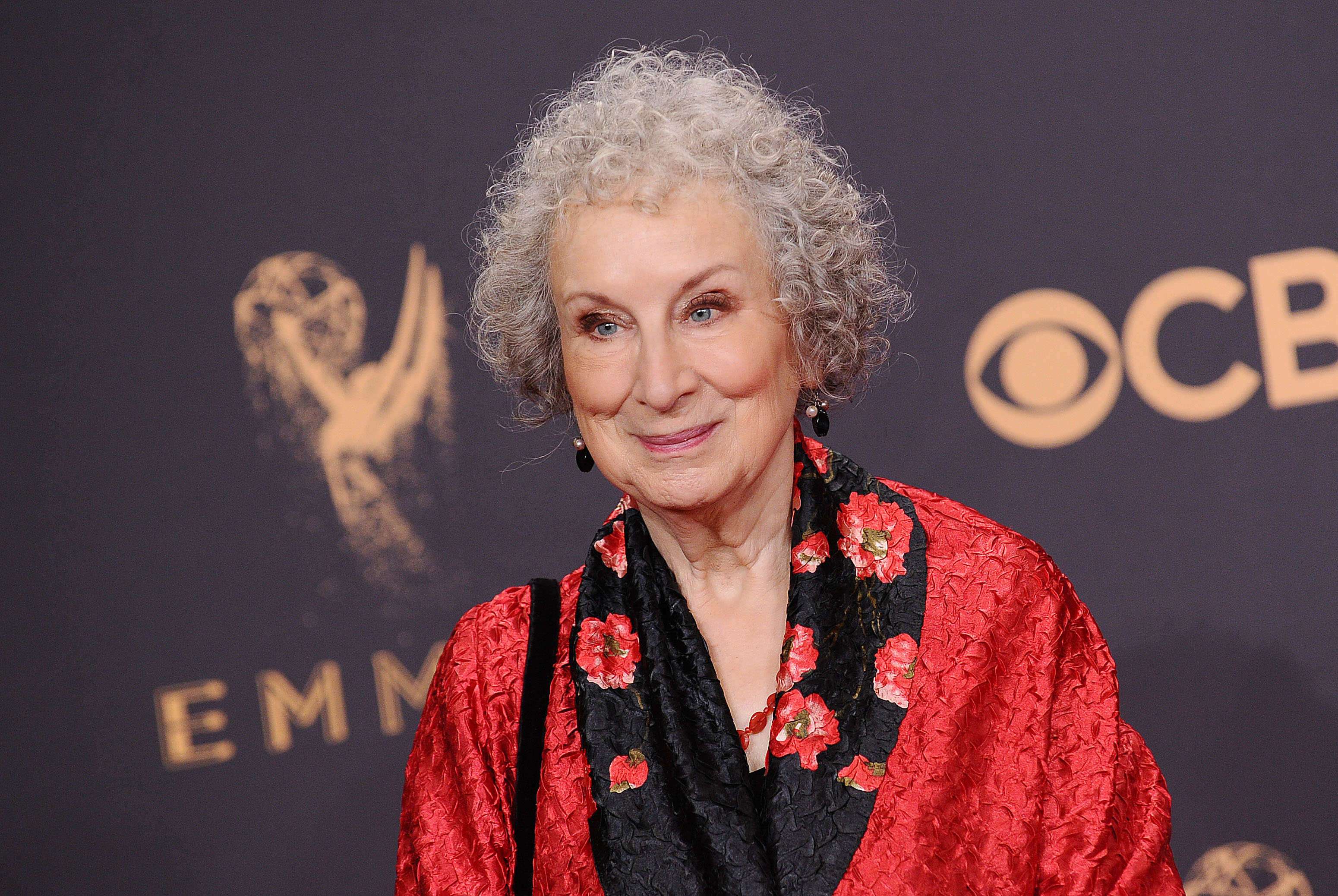‘The Handmaid’s Tale’ Author ‘Avoided’ Writing the ‘Risky’ Book for a Long Time
The Handmaid’s Tale is author Margaret Atwood’s most famous book, however, she was hesitant to write it. She felt it was “risky” and she had some issue with its presence. Here’s a look at her thought process — and how critics and audiences reacted to the book.

Why ‘The Handmaid’s Tale’ author felt writing the book was ‘risky’
In 2017, Atwood published an essay in The New York Times discussing many aspects of The Handmaid’s Tale — including her decision to write the book. “By 1984, I’d been avoiding my novel for a year or two,” she recalled. “It seemed to me a risky venture. I’d read extensively in science fiction, speculative fiction, utopias and dystopias ever since my high school years in the 1950s, but I’d never written such a book. Was I up to it?”
Atwood explained her hesitation to write a dystopian novel. “The form was strewn with pitfalls, among them a tendency to sermonize, a veering into allegory and a lack of plausibility,” she opined. “If I was to create an imaginary garden I wanted the toads in it to be real. One of my rules was that I would not put any events into the book that had not already happened in what James Joyce called the ‘nightmare’ of history, nor any technology not already available. No imaginary gizmos, no imaginary laws, no imaginary atrocities. God is in the details, they say. So is the devil.”

In addition, Atwood had issues with the premise of The Handmaid’s Tale. “Back in 1984, the main premise seemed — even to me — fairly outrageous.” She worried whether she’d be able to convince people that the Republic of Gilead could come into existence. At the same time, World War II taught Atwood totalitarianism could arise anywhere and horrible changes could happen over short amounts of time.
‘The Handmaid’s Tale’ author almost won this famous award for the book
Atwood admitted she was worried the book was too outrageous. This raises an interesting question: Did the literary world react well to the book? The book was shortlisted for the prestigious Booker Prize, losing to Kingsley Amis’ The Old Devils. Interestingly, the book’s sequel, The Testaments, won the Booker Prize in 2019.

PBS poll says ‘The Handmaid’s Tale’ is one of America’s favorite books
In addition, the book continued to receive acclaim decades after its release. For example, The Handmaid’s Tale was No. 34 in the Great American Read, a 2018 PBS poll of America’s 100 favorite novels. Atwood’s book stood alongside other classics like Jane Austen’s Pride and Prejudice, Zora Neale Hurston’s Their Eyes Were Watching God, and Oscar Wilde’s The Picture of Dorian Gray. For the record, Harper Lee’s To Kill a Mockingbird topped the list. Atwood initially had some issues with the book, however, it appears critics and the public embraced it.


